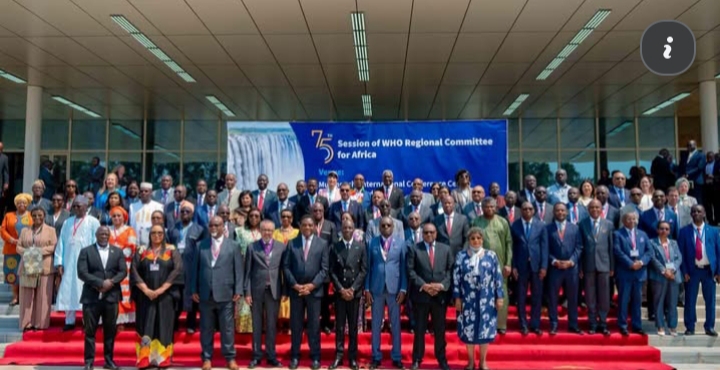From August 25 to 27, 2025, Zambia’s capital Lusaka becomes the beating heart of African public health as it hosts the 75th session of the World Health Organization (WHO) Regional Committee for Africa. This annual gathering, considered the highest decision-making body of WHO in the region, brings together health ministers from 47 African member states, representatives of international organizations, civil society, and development partners.
A Strategic Platform for Africa’s Health Future
The Regional Committee plays a crucial role in shaping health policies, setting regional priorities, and approving financial plans aimed at improving the health of African populations. This 75th edition, held at the Mulungushi International Conference Centre, comes at a pivotal moment as health challenges grow more complex: pandemics, workforce shortages, limited access to care, and the effects of climate change.
Strong Voices for a Healthier Africa
Zambian President Hakainde Hichilema opened the session with a call for stronger health diplomacy and harmonized public health regulations across the region. He emphasized that health should be seen as a driver of economic and industrial development.
WHO Director-General Dr. Tedros Adhanom Ghebreyesus praised Africa’s efforts to build resilient health systems rooted in autonomy and efficiency. WHO Regional Director for Africa Dr. Mohamed Janabi stressed the need to transform the health architecture to be “transparent, accountable, and tailored to African realities.”
Concrete Resolutions for Accessible Care
Key topics addressed this year include:
– Oral Health: Adoption of a regional framework to integrate dental care into primary health services, with clear goals set for 2030.
– Blood Transfusion: Implementation of a strategy to ensure universal access to safe and effective blood products, addressing chronic shortages that endanger mothers, children, and patients with sickle cell disease.
– Rehabilitation and Care for Vulnerable Populations: Development of plans to expand access to rehabilitation services, which remain out of reach for two-thirds of Africans in need.
A Call for Unity and Innovation
Beyond resolutions, this session embodies a call to collective action. As Zambian Health Minister Dr. Elijah Muchima noted: “No country can tackle today’s health challenges alone. We must strengthen regional collaboration, share best practices, and build lasting resilience.”
This summit marks a historic milestone for Zambia and for Africa as a whole. It reflects a shared commitment to making health a pillar of progress and social justice. For more information, you can visit WHO Africa’s official website.







OTHER ARTICLES
Editorial — Prevent, inform, and act for women’s health in Africa
Kenya : Government Prioritises Maternal Health and Strengthens Support for Community Health Promoters
Strengthening pandemic prevention, preparedness, and response capacities in Senegal using the “One Health” approach